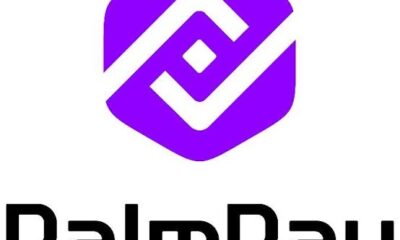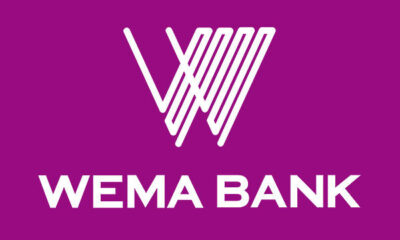Business
Why CBN Banned Opay, Palmpay, Kuda Bank, Moniepoint From Boarding New Customers

The Central Bank of Nigeria (CBN) has instructed four Nigerian fintech companies to stop the onboarding of new customers.
Why CBN Banned Opay, Palmpay, Kuda Bank, Moniepoint From Boarding New Customers
The affected firms include OPay, Palmpay, Kuda Bank, and Moniepoint.
Reliable sources within major fintech companies, speaking anonymously to our reporter confirm the CBN’s directive instructing these firms to suspend new customer onboarding.
This action is part of the CBN’s thorough audit of the Know-Your-Customer (KYC) procedures employed by these companies.
READ ALSO: Sack: We’re Living In Fear – CBN Staff
This directive comes amid ongoing investigations into allegations of illicit foreign exchange transactions involving accounts on these platforms.
Recent scrutiny has raised concerns over potential loopholes in the KYC procedures, which could be exploited for money laundering and terrorism financing.
Heads of several fintech firms were summoned to Abuja last week to address KYC-related issues, indicating increased regulatory oversight in the sector.
The CBN’s approach aims to align fintech operational standards with those of traditional banks, ensuring the integrity and stability of Nigeria’s financial system.
A representative from two of the affected companies confirmed that the CBN’s directive is related to these accusations.
However, they expressed concerns that the directive may be misdirected, noting that the majority of the implicated accounts are associated with commercial banks rather than fintech platforms.
“I can confirm that 90% of the accounts implicated in the illicit forex transactions are with commercial banks, and only 10% are with fintechs,” one of the sources said.
“Why then has the CBN not extended this directive to the commercial banks? We face a widespread issue here, and targeting fintechs seems like an unfair focus on the more vulnerable targets.”
READ ALSO: Anxiety as CBN sacks 50 more staff
However, the President of the Bank Customers Association of Nigeria: expressed support for the CBN’s decision, emphasizing the necessity of strict regulatory compliance.
“The strict regulations that govern deposit money banks must also apply to fintechs and microfinance banks to ensure the integrity of the financial institutions,” Ogubunka stated.
“Anything that can disrupt the system should not be permitted. If the platforms are being used for things that are against the regulations, I think the CBN decision is OK. I don’t see anything wrong with that. It behoves the companies now to get their KYC right.
“Let them do what they are supposed to do. KYC applies to banks and other financial institutions that deposit money. It should also apply to them so that the regulators can understand what is going on and hold them accountable.”
Meanwhile, Emmanuel Odunsi on X welcomed the move, highlighting the need for improved KYC processes to prevent scams and fraud.
“Their KYC isn’t that great. Lots of scammers are using their apps to defraud people. Most of the accounts were created by mining phone numbers, with subscribers’ permission. Almost every phone number has been linked to an account,” Odunsi said.
However, some customers express concerns about the safety of their funds on these platforms, prompting discussions on social media about transferring money out of fintech accounts.
-

 News3 days ago
News3 days agoFamily, Friends Celebrate Jailed Former Deputy Senate President, Ike Ekweremadu’s Birthday
-

 Politics3 days ago
Politics3 days agoPROPHESY TO PRESIDENT BOLA AHMED TINUBU ABOUT 2027
-

 Niger Delta6 days ago
Niger Delta6 days agoNiger Delta Stakeholders Accuse Olu of Warri and PINL Management of Dishonesty Over Terminated Pipeline Contract
-

 News6 days ago
News6 days agoBaraza Cooperative Disputes Becky Buodeigha’s Claims, Cites Pattern of Dishonesty
-

 Business1 day ago
Business1 day agoNigeria’s Azikiel Refinery to Begin Operations in 2025
-

 Business4 days ago
Business4 days agoBaraza: Bribena pleads for understanding, highlights solutions to organization’s problems
-

 Business6 days ago
Business6 days agoWema Bank Unveils CoopHub, Nigeria’s First Digital Platform for Cooperative Societies
-

 Politics7 days ago
Politics7 days agoDelta LG Polls: Oborevwori makes case for gender inclusiveness










